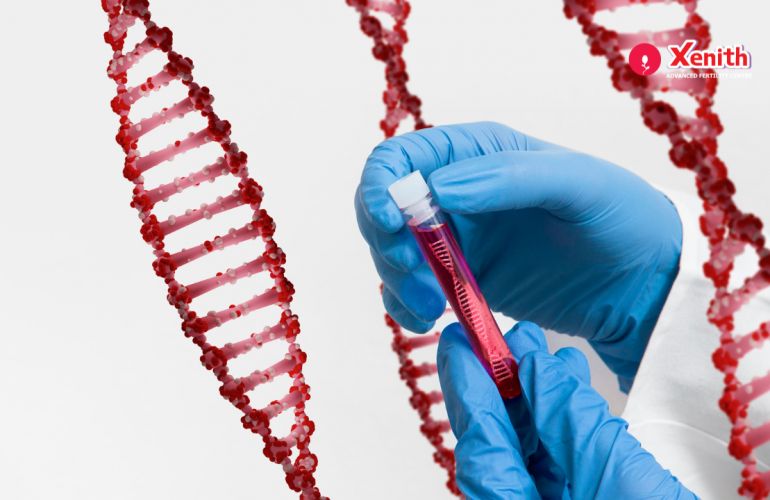Infertility is defined as the failure to conceive after having had regular unprotected sex for 1 year or more. Dealing with infertility could be emotionally traumatizing on the couple trying to conceive. It could take its toll not only physically but also mentally and emotionally. The rollercoaster of emotions of getting your hopes up only to find out that conception did not occur could take a huge toll on you. Feelings of grief, anger, resentment, isolation, shock, depression and shame along with many other feelings all combine together to make it very challenging to cope up with the day to day activities.
When you are first diagnosed with infertility, you might feel shocked initially thinking that this could not be possibly happening to you. You might also feel angry afterwards and resent others who have had no problems having children. It could also lead to anxiety and depression while not wanting to step out of your house. You may also experience grief and feel the terrible loss for not being able to become a parent causing you to feel all alone and ashamed that you aren’t able to conceive. You might also face the burden of societal expectations with people asking why you haven’t had a child yet. All this could, in turn, lead to struggles in your relationship with your spouse. Finally, you might accept your situation as it is and learn to move ahead optimistically. Different people have different ways of coping. Some may seem very strong on the outside but are struggling inside and others might fall to pieces and begin crying at the drop of the hat. So how do you cope with all this? You will need to learn to figure out what works for your unique circumstances. Here are a few tips you could try to make it a little easier.
- Open communication- is important to have especially with your partner because it could be hard on relationships. Try to be honest with your partner about how you are feeling so that you don’t need to feel alone and could work on processing your feelings together. You might be feeling guilty thinking that what is happening is your fault or you might be blaming your spouse for what is happening. So, it needs to be discussed without placing blame on one another and this in turn could strengthen yourself and your relationship. Sometimes you or your partner might need space to process the information and be aware that different people might cope up and process information in different ways. So, allow this for yourself and for your partner if it’s needed.
- Seek support- from close friends, family, spouse, support groups, a counsellor or whomever you feel comfortable confiding with. It helps to reach out and get much needed support, maybe also from others who have also been in your shoes before. Give yourself time to process this news and recover from this and the amount of time needed could vary from person to person.
- Try to destress- by practicing yoga, meditation, breathing exercises or other ways that help you deal with stress and anxiety. Try out things that relax you like journaling, going for a walk, listening to music, go for a massage, paint, go out for dinner or movie with friends or whatever else that keeps your mind calm. Practice mindfulness by not thinking about things that you cannot control and instead try to be aware of the present and where your mind is travelling and filling it up with positive, empowering thoughts.
- Educate yourself- about infertility and how it could affect you. Talk to your doctor, look online or look to others who went through it to see what to expect in these circumstances. Also learn about what are the treatment options for infertility so that you have something to look forward to.
- Take care of your physical health– try to eat a balanced diet, avoid junk food, sugary and processed foods, don’t smoke, don’t drink excessively, exercise regularly on a daily basis, get enough sleep and try to cut down on your weight if you are obese because all these factors could improve your fertility.
- Take care of your mental health by understanding what your triggers are. Learn to prioritize yourself and practice self-care. Try not to blame yourself and know that infertility is not your fault. You might be struggling with fulfilling social pressures or familial obligations or maybe want to feel accepted by others. But get to know yourself and try to set boundaries. It’s okay to say no to a kid’s birthday party if you don’t feel up to it or attend a family function where people might ask you when you are going to have a baby for example. You could also think up answers beforehand if you have to attend the function.
- Take a break from trying to conceive- the intimacy with your partner might start feeling like a chore and so you might need to take a break from it. Enjoy some time off so that you are rejuvenated and feel refreshed if you would like to try again.
If you feel that dealing with infertility has become unmanageable and you are dealing with depression which has made you lose all interest in day to day activities, feeling angry suddenly, dealing with insomnia, feeling sad all the time, feeling tired, having reduced appetite, having trouble concentrating or thinking, or having thoughts of death. All these might be indicative that you are dealing with depression and you need to seek help from a therapist who can help you overcome these thoughts and feelings and teach you healthy coping methods. If you are struggling with infertility or already have had a failed in vitro fertilization procedure in the past, come speak to the experts at Xenith Advanced Fertility Centre where we specialize in dealing with people who have had previous failed IVF treatments and turning your dreams of parenthood a reality.




